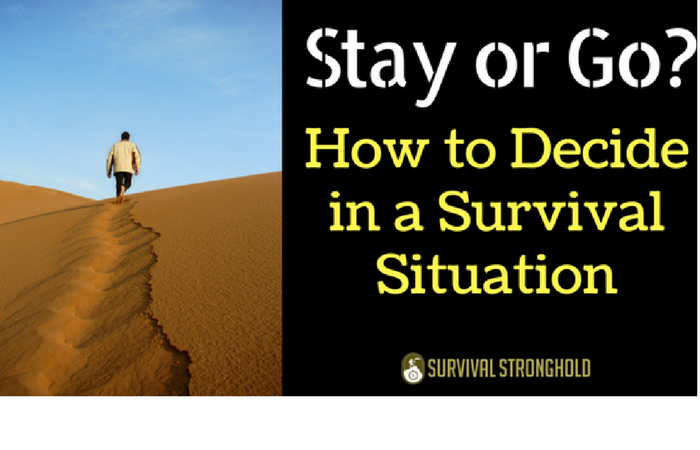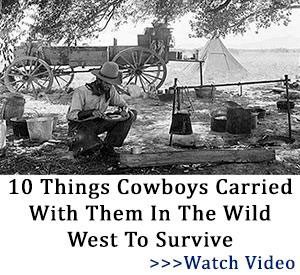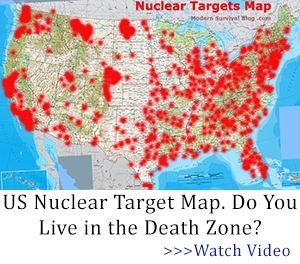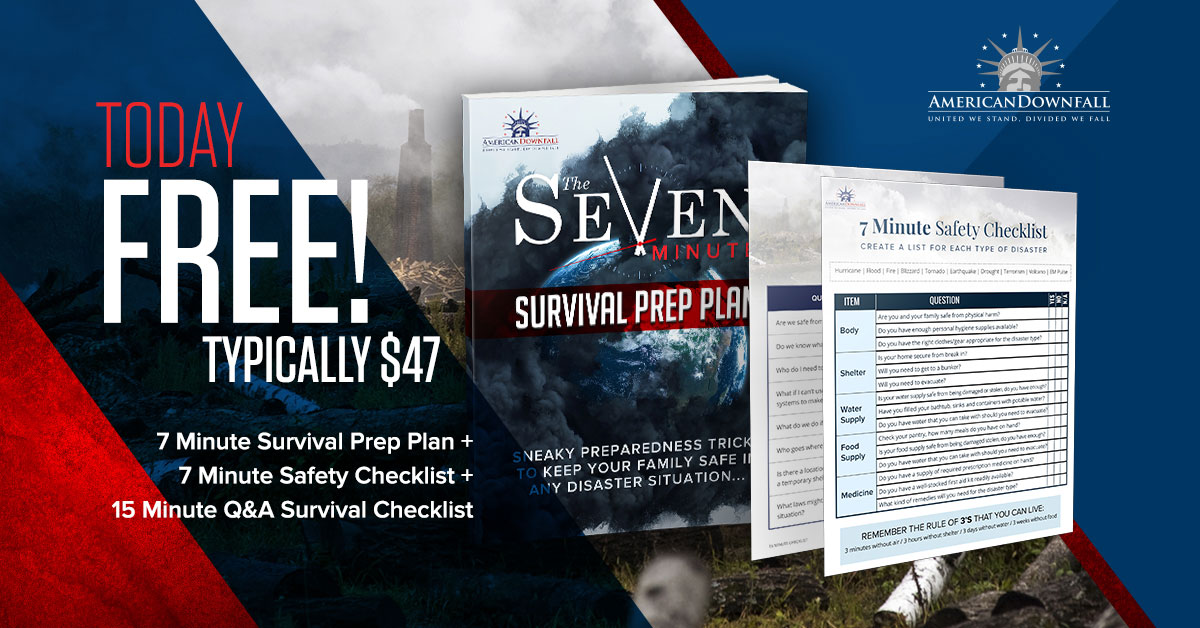If you are in an accident or end up injured or stranded in the wilderness, one of the biggest questions you might face will be whether or not to stay put and try to stay alive there, or venture out and look for help.
Existentially, you will, of course, have no idea which will get you saved, but there are a number of factors you can take into account that will help you make a prudent decision based on which option is better for you at the time, considering the circumstances.
This is a simple guide as to how to decide between staying in place or venturing off, in a survival situation.
Staying in Place
90% of the time this will be the safer option. If there’s a good likelihood that rescue teams are looking for you, they will be looking in the last place you were, and if you’re near your site of distress, such as near your stranded vehicle, crashed plane, or campsite, this is the sort of thing rescue teams are going to be looking for.
They’re significantly less likely to find you in the middle of nowhere. Signs of life such as vehicles, structures, or camping equipment, are much easier to see from an airplane or helicopter than an individual person, so stay close to these.
And wherever you are, if you make a distress signal, you’ll want to stay near that as well, because it might be spotted by someone who is unable to call for help right away so rescue teams might be looking for that sign days later.
Signs of life such as vehicles, structures, or camping equipment, are much easier to see from an airplane or helicopter than an individual person, so stay close to these. And wherever you are, if you make a distress signal, you’ll want to stay near that as well, because it might be spotted by someone who is unable to call for help right away so rescue teams might be looking for that sign days later.
Ultimately, choosing to stay in place to survive should definitely be done if:
- You are with a vehicle, such as plane, boat
- You are on a trail or in a campsite
- You are in a shelter of some other kind
- You are with a group of people
- None of the vehicles, structures, (or people for that matter) pose some kind of threat to your life
- You or someone in your group has a life-threatening injury or medical condition
Departing
While most of the time staying in place will be your best bet, there are cases in which you might prefer to depart and venture out to find people, supplies, or shelter.
If you are well-equipped for travel, such as wearing sturdy hiking boots, have a backpack with at least some supplies, and are in good physical condition, your odds of surviving are much greater. If you are adept at hunting and foraging for food, and have exhausted all sources of food at the site of your accident, this might also increase the chances that you will feel led to venture off.
Suggested Article: “3 Great Strategies to Signal For Help”
Another case in which you might want to travel is if you are certain that absolutely no one could possibly know where you are, and the only chance you have to survive would be to find people or a better, more consistent source of food.
If you are in a group situation, it might be particularly appealing to some of the members of the group to depart, and for others, particularly those less physically fit, to stay put. In this case, send the most equipped off to find help or supplies, and keep vital information about who they are, where they were going, what they were going to do, what they looked like, and their intended route, safe with you at camp.
The person who is leaving the group should have the more vital supplies, such as knives or canteens, but of course, there might be a great deal of contention over who gets what, so for the sake of everyone’s survival, try to choose the options that upset the least amount of people.
The best guidelines for when to travel in a survival situation are as follows:
- You have no idea where you are and are near nothing man-made (no vehicle, structure, campsite, trail, etc)
- If the above is true and you are completely alone
- If absolutely no one will know where you are or could possibly be (think, the movie 48 Hours)
- You have no more vital supplies such as food or water
- Someone in your part is in urgent need of medical care
- You are confident you know where you would be going and how to get there, and could survive the journey safely
Of course, all of these are just guidelines. Every situation is going to be slightly different, so above all, use your reasoning skills and trust your instinct. You won’t be able to see the future so sometimes you might just need to take the chance that what you choose will have the safer outcome, but there are risks and advantages to both options so you’ll just have to decide what’s best for you.
Stay safe out there.





